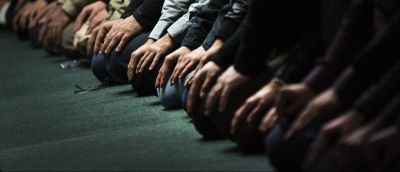Maryland student sues school for allegedly forcing her to promote Islamic beliefs in class

A former high school student’s parents are taking their lawsuit against a Maryland school district over allegedly being forced to promote Muslim beliefs to the U.S. Supreme Court.
The parents of Caleigh Wood, who are represented by the Thomas More Law Center, asked the Supreme Court last week to hear an appeal in a suit they filed against Charles County Public Schools.
Law Center President Richard Thompson said in a statement released last Wednesday that he believed some “public schools have become a hot bed of Islamic propaganda.”
“Under the guise of teaching history or social studies, public schools across America are promoting the religion of Islam in ways that would never be tolerated for Christianity or any other religion,” stated Thompson.
“Prompted by zealous Islamic activism and emboldened by confusing court decisions, schools are now bending over backwards to promote Islam while at the same time denigrate Christianity. We are asking the Supreme Court to provide the necessary legal guidance to resolve the insidious discrimination against Christians in our public schools.”

In January 2016, the law center filed a suit on behalf of the Wood family against the school district in the U.S. District Court for the District of Maryland.
According to the complaint, during the 2014-2015 academic year, 11th grader and devout Christian Wood was compelled to promote Islamic beliefs during a world history class.
Allegedly, students were taught that “most Muslim’s faith is stronger than the average Christian” and instructed to recite passages from the Quran and the shahada, or Muslim statement of faith.
The lawsuit also claimed that Wood and the other students were “instructed that the Islamic religion is a fact while Christianity and Judaism are just beliefs.”
“For example that the ‘Qur’an is the word of Allah as revealed to Muhammad in the same way that Jews and Christians believe the Torah and the Gospels were revealed to Moses and the New Testament writers,’” explained the 2016 lawsuit.
“During its brief instruction on Christianity, Defendants failed to cover any portion of the Bible or other non-Islamic religious texts, such as the Ten Commandments. Instead, the class included disparaging remarks about Christianity and the Pope.”
Wood refused to do the assignment on the basis of religious objection and requested to do an alternative assignment. The school rejected the request and gave her a failing grade.
In September 2016, District Court Judge George Hazel ruled against the Wood family, rejecting a preliminary injunction against the school district and partly granting a motion to dismiss.
In February, a three-judge panel of the U.S. Court of Appeals for the Fourth Circuit upheld the district court ruling in a unanimous decision.
Circuit Judge Barbara Keenan, author of the panel opinion, wrote that the court decided that the history course “did not violate Wood’s First Amendment rights, because they did not impermissibly endorse any religion and did not compel Wood to profess any belief.”
“Nothing in the record indicates that the comparative faith statement was made with a subjective purpose of advancing Islam over Christianity, or for any other predominately religious purpose,” wrote Judge Keenan.
“The students were not required to memorize the shahada, to recite it, or even to write the complete statement of faith. Instead, the worksheet included a variety of factual information related to Islam and merely asked the students to demonstrate their understanding of the material by completing the partial sentences.”




























